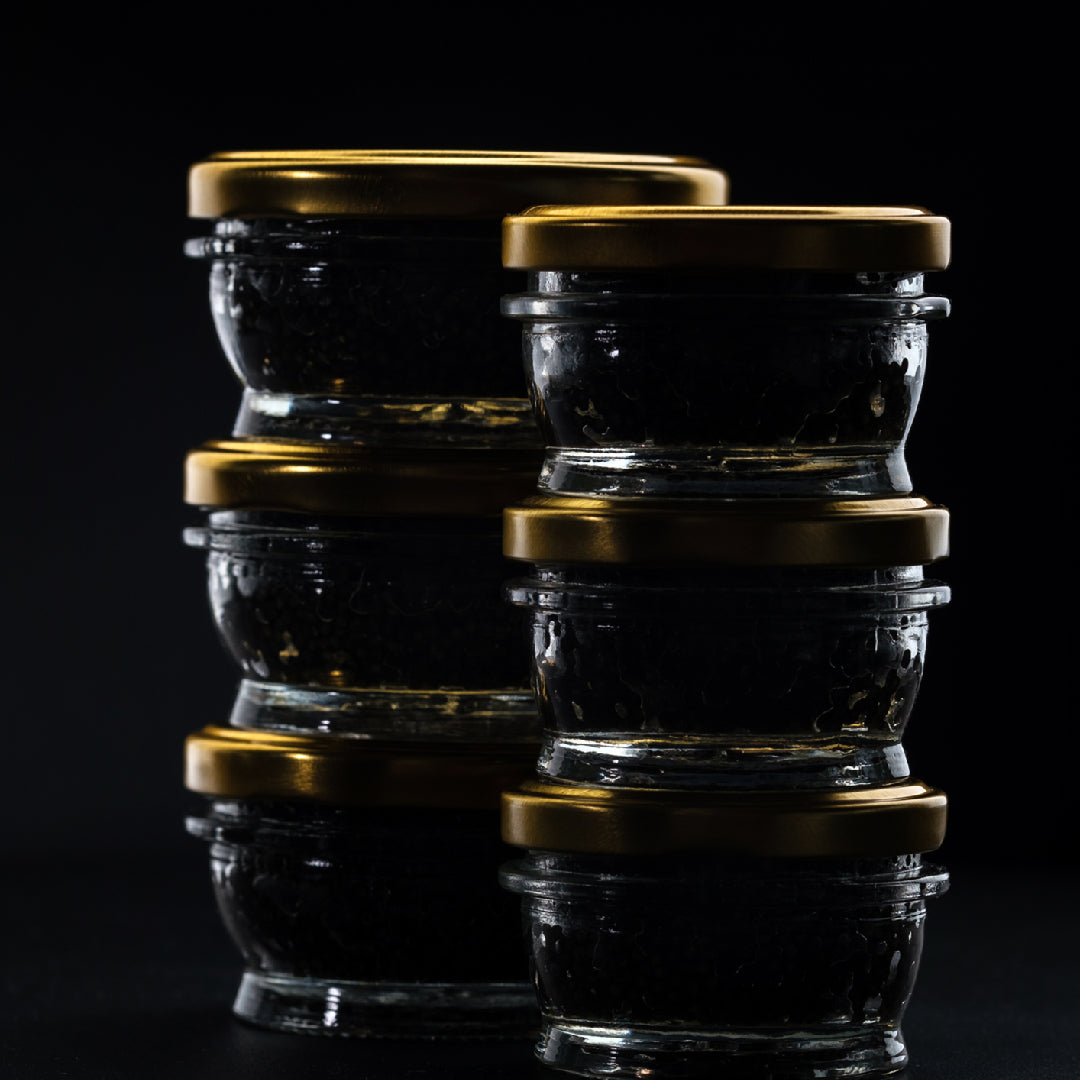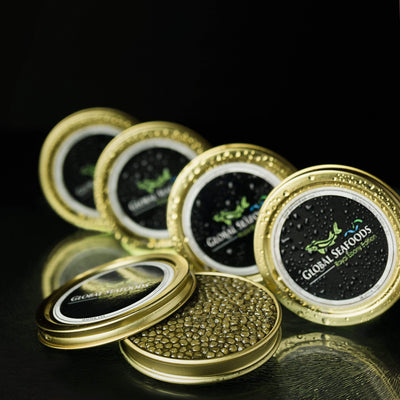The Future of Sturgeon Caviar: Sustainability and Innovative Trends

Sturgeon Caviar: Sustainability
Sturgeon caviar, synonymous with luxury and culinary excellence, is at a pivotal crossroads. The pressures of overfishing, environmental degradation, and evolving consumer preferences demand innovative solutions to secure its future. This comprehensive guide explores how sustainability, advanced technology, and market trends are shaping the sturgeon caviar industry.
Focus Keyword: Future of Sturgeon Caviar
Long-Tail Keywords: Sustainable sturgeon caviar farming, innovations in caviar production, trends in the caviar market
The Present and Future Landscape of Sturgeon Caviar
1. Sturgeon Caviar’s Enduring Appeal
Caviar, derived from the roe of sturgeon fish, has long symbolized opulence. However, its continued demand faces challenges:
- Endangered Species: The International Union for Conservation of Nature (IUCN) states that 85% of sturgeon species are critically endangered.
- Shifting Preferences: Millennials and Gen Z are seeking sustainable luxury products.
“Caviar’s legacy is as delicate as its flavor. The future depends on balancing demand with conservation,” says marine biologist Dr. Sylvia Earle.
2. Economic and Market Shifts
Global Growth
The caviar market is projected to grow by 7.2% annually, reaching $500 million by 2030. This growth reflects increased interest in sustainable and high-quality alternatives like California White Sturgeon Caviar.
Emerging Markets
Regions such as the US, France, and China are investing heavily in sustainable aquaculture, fostering competition with traditional producers in Russia and Iran.
Sustainability in Sturgeon Caviar Production
1. The Transition from Wild to Farmed Caviar
Overfishing has depleted wild sturgeon populations, prompting a necessary shift to aquaculture. Leading producers like Global Seafoods are spearheading sustainable practices, including:
- Closed-Loop Aquaculture Systems: Recirculate water to minimize environmental impact.
- Organic Feed: Reduces reliance on wild fish stocks.
2. Certifications and Consumer Confidence
Key Certifications:
- CITES ensures caviar is sourced ethically.
- ASC (Aquaculture Stewardship Council) certifies farms adhering to strict environmental standards.
By choosing certified products, consumers can support ethical practices and sustainable growth.
Innovations Transforming Sturgeon Caviar Farming
1. Smart Technology in Aquaculture
AI and Machine Learning
Advanced algorithms monitor fish health, optimize feeding schedules, and predict water quality issues in real time.
IoT Sensors
IoT (Internet of Things) sensors track oxygen levels, temperature, and salinity, providing optimal conditions for sturgeon growth.
2. Genetic Advancements
- Selective Breeding: Enhances fish health and improves caviar yield.
- Cryopreservation: Allows for controlled spawning and biodiversity preservation.
3. Eco-Friendly Production Techniques
Producers are exploring:
- Renewable energy sources for farm operations.
- Biodegradable packaging for caviar distribution.
Emerging Market Trends in Sturgeon Caviar
1. Rise of Niche Caviar Varieties
Beyond traditional options, varieties like Siberian Sturgeon Caviar and Wild Sturgeon Black Caviar are gaining traction for their distinct flavors and affordability.
2. Luxury Meets Sustainability
Younger generations demand ethical luxury, driving producers to align with eco-conscious practices without compromising quality.
3. Caviar Subscription Services
High-end caviar subscription boxes are becoming popular, offering monthly selections of premium options like Ossetra Sturgeon Caviar.
The Role of Technology in Shaping Caviar’s Future
1. Blockchain for Transparency
Blockchain technology ensures traceability, allowing consumers to verify the origin and sustainability of their purchase.
2. Augmented Reality Experiences
Innovative brands are using AR to offer virtual farm tours, educating consumers on sustainable farming practices.
3. New Curing Techniques
Low-salt curing methods enhance natural flavors and appeal to health-conscious consumers.
Caviar Tourism: An Emerging Experience
Caviar farms in the US, France, and Italy are creating immersive experiences where visitors can tour facilities, sample products, and learn about sustainable production. These initiatives educate consumers and build brand loyalty.
FAQs About the Future of Sturgeon Caviar
1. What is the future of wild sturgeon caviar?
With stringent regulations and conservation efforts, wild caviar will become increasingly rare, making sustainable aquaculture the primary source.
2. How are caviar producers reducing environmental impact?
Producers are adopting closed-loop aquaculture systems, renewable energy, and biodegradable packaging to minimize their ecological footprint.
3. What are the benefits of farm-raised sturgeon caviar?
Farm-raised caviar ensures consistent quality, ethical sourcing, and reduced pressure on wild populations.
4. Which caviar varieties are sustainable?
Options like California White Sturgeon Caviar and Siberian Sturgeon Caviar are farmed sustainably.
5. Can blockchain help the caviar industry?
Yes, blockchain enhances traceability and transparency, building consumer trust in sustainable sourcing.
Conclusion: Securing the Future of Sturgeon Caviar
The future of sturgeon caviar depends on the industry’s ability to innovate while protecting the environment. With advances in technology, sustainable farming, and evolving market trends, this luxurious delicacy is poised for a promising future.
Explore premium caviar options at Global Seafoods and learn more by visiting their YouTube channel.
Also in News

How to Make Sea Bream Sushi With Dry-Aged Tuna & Crab Roll — Step-by-Step With Chef Joshua
A complete guide to making Sea Bream sushi at home, including filleting, curing, slicing, and building a Dry-Aged Tuna & Crab sushi roll. Chef Joshua shares professional tips for restaurant-quality results.

Cooked Crab for Game Night: Everything You Need for a Perfect Seafood Party
Take your game night to the next level with a Cooked crab party. Learn the best recipes, cooking tips, and hosting hacks for a memorable seafood feast.

Steam Crab for Date Night: A Romantic Guide to the Perfect Seafood Feast
Make your next date night unforgettable with a romantic Steam crab experience. This guide covers everything you need to know, from ambiance to the best crab varieties.

